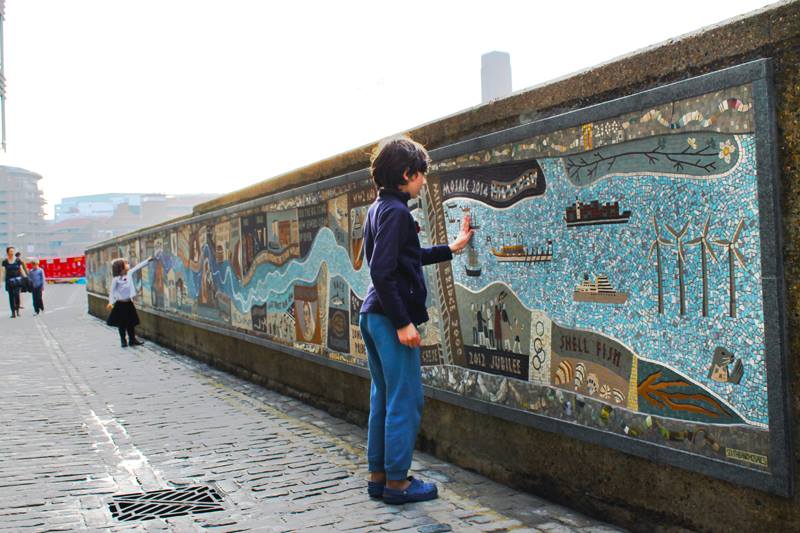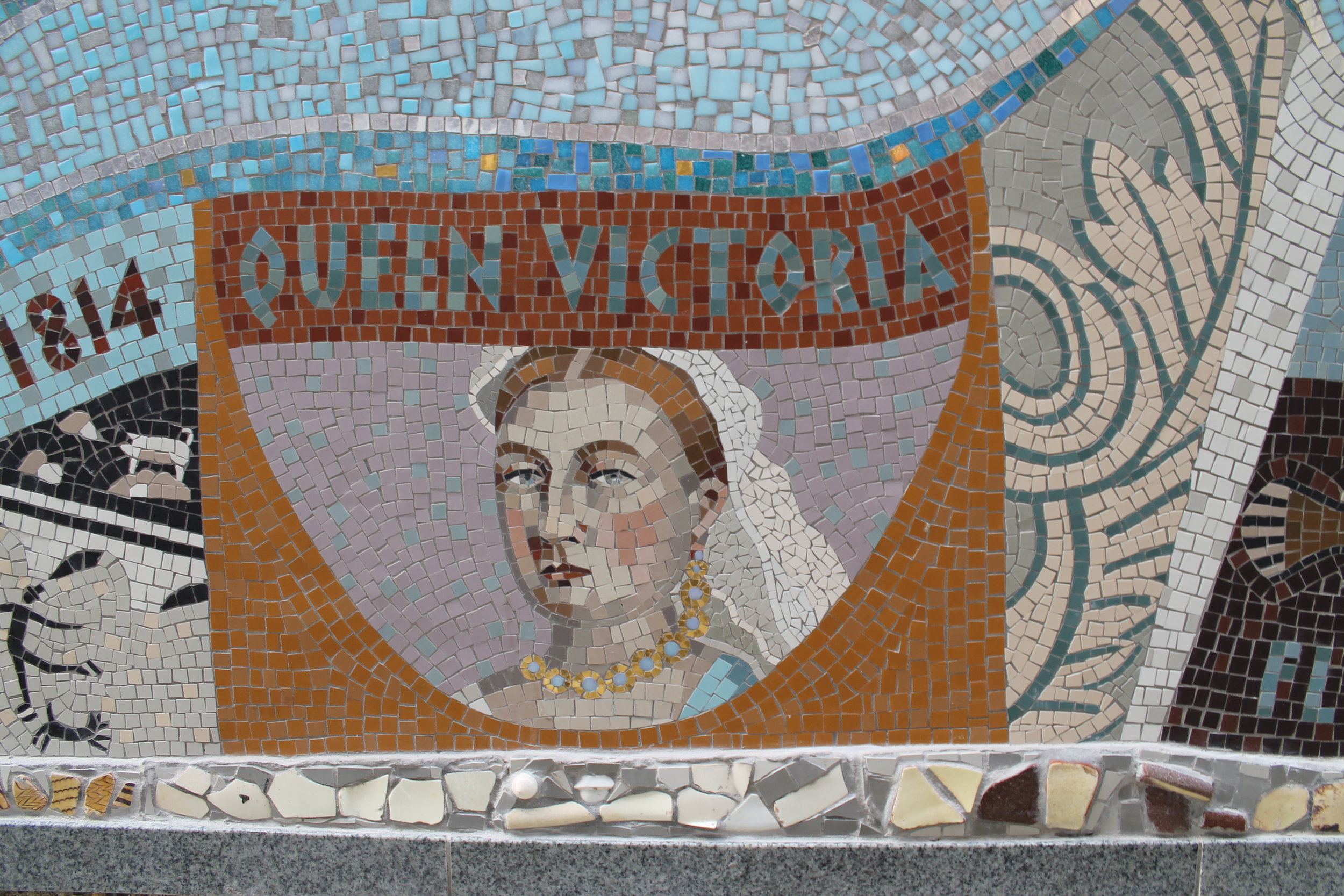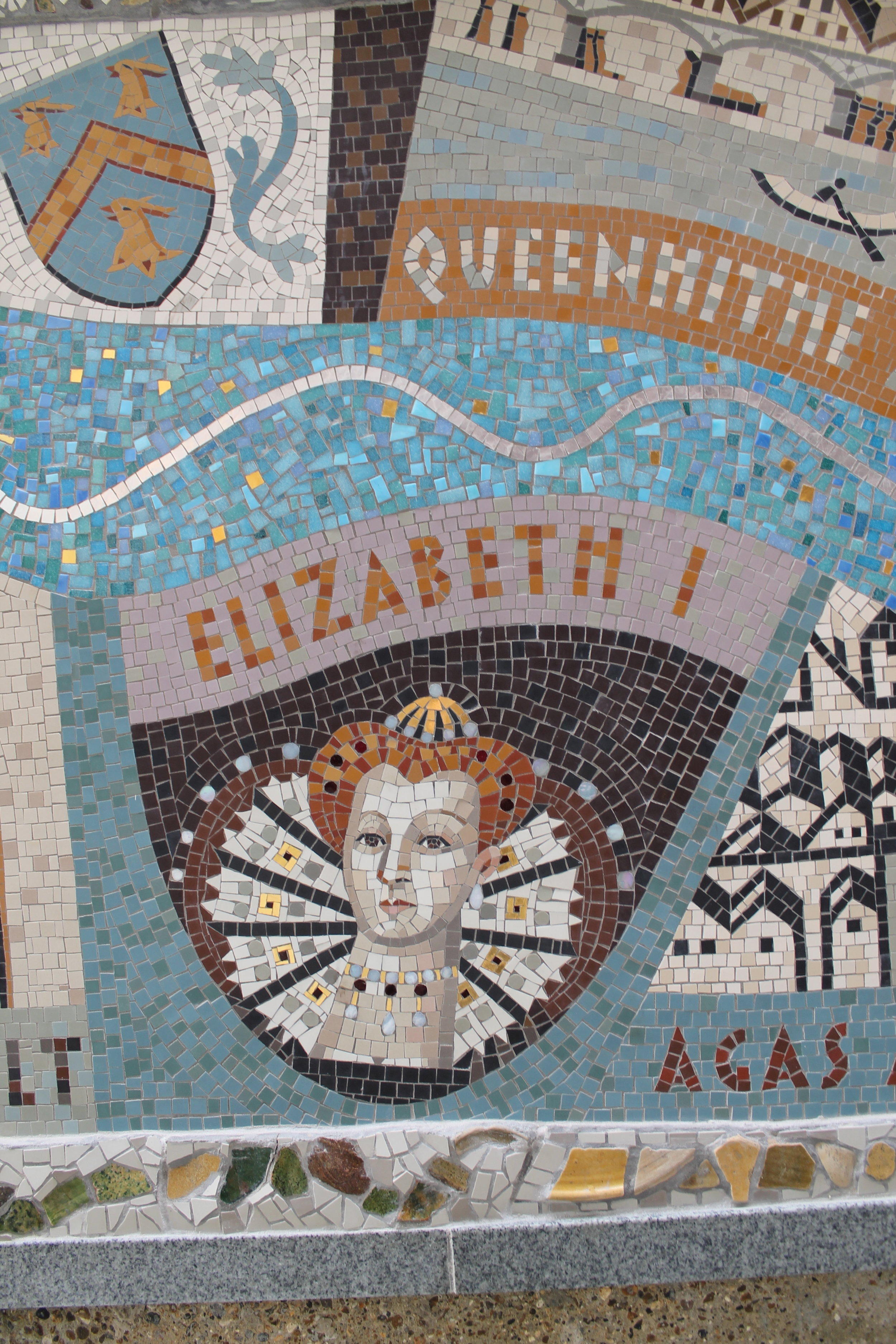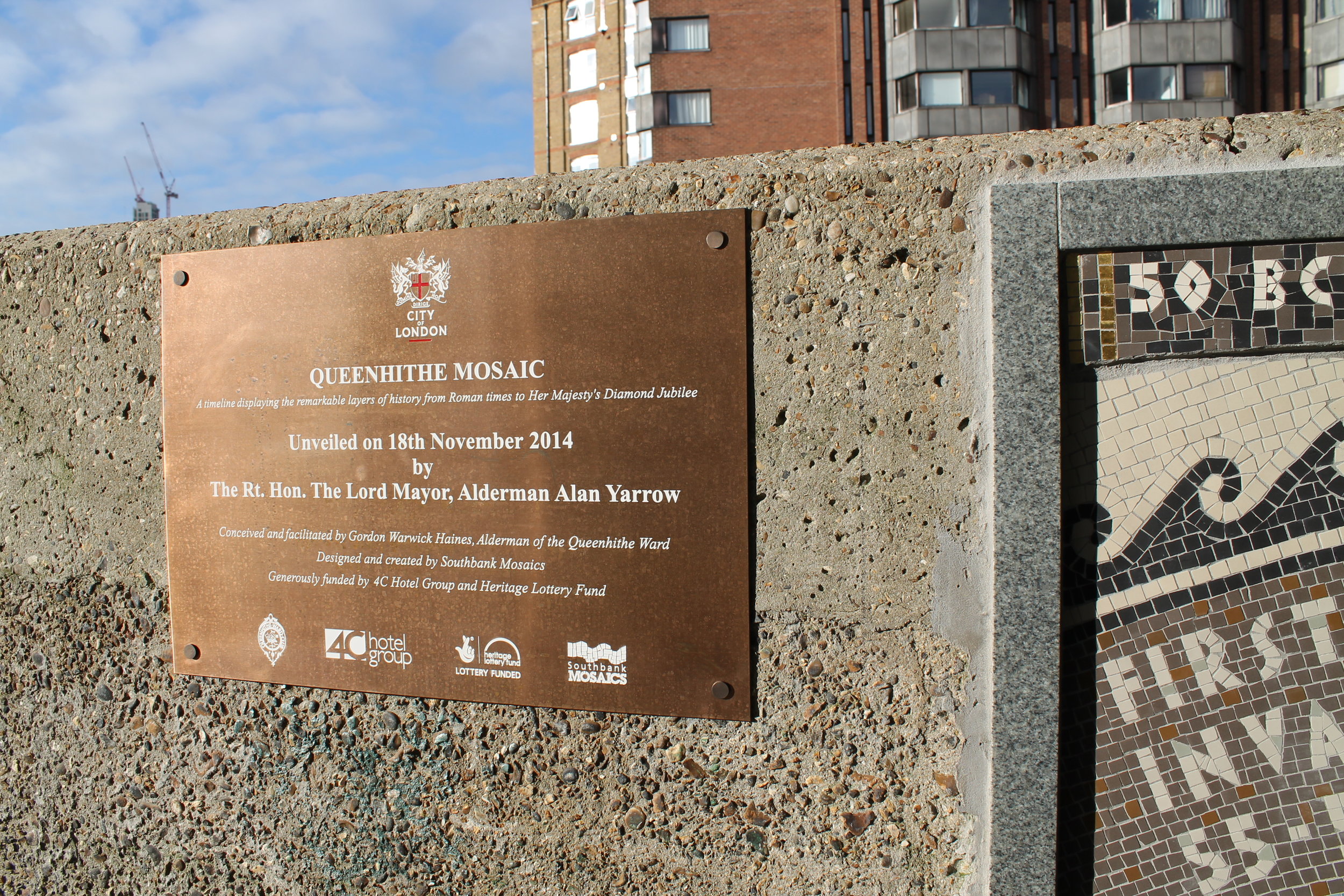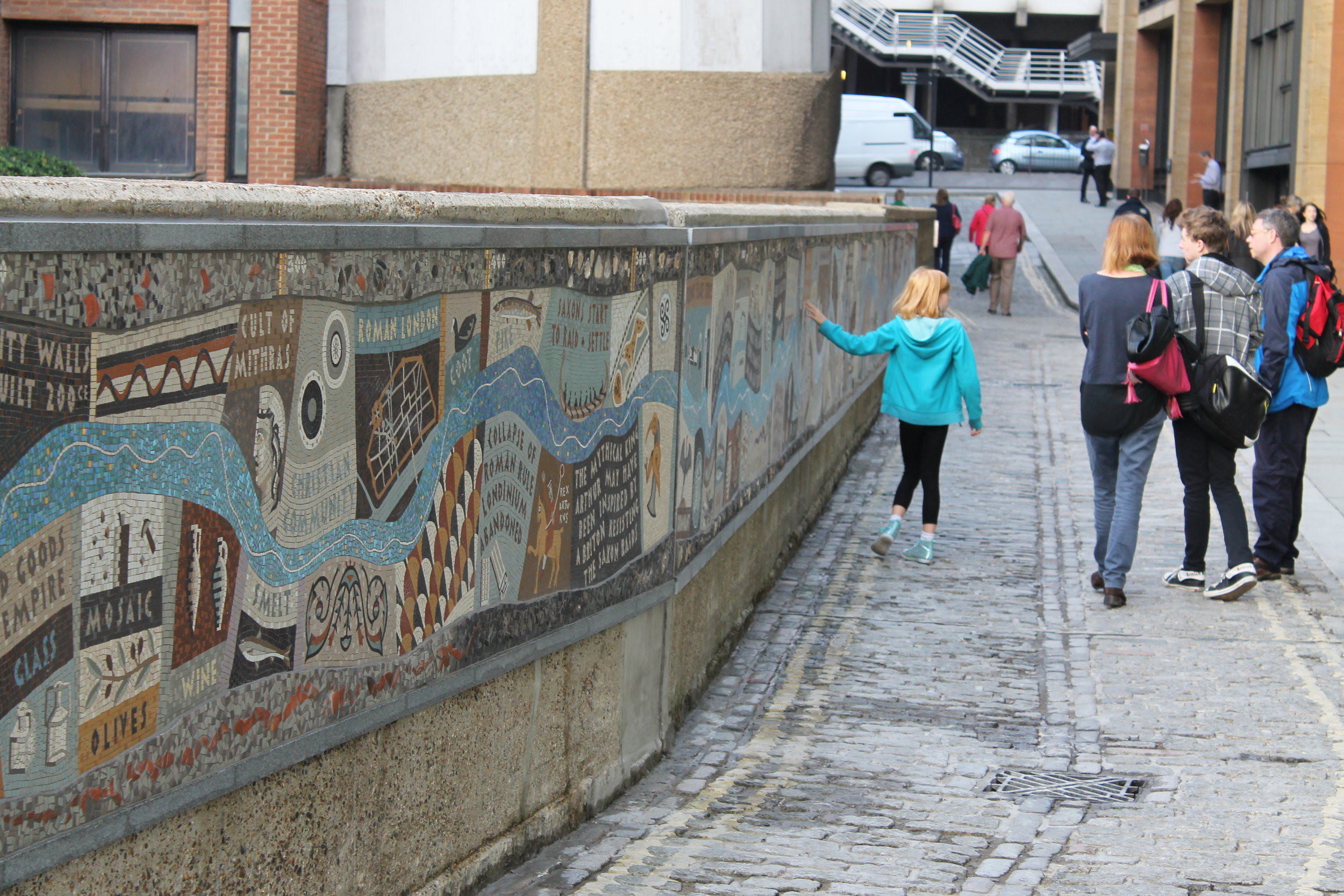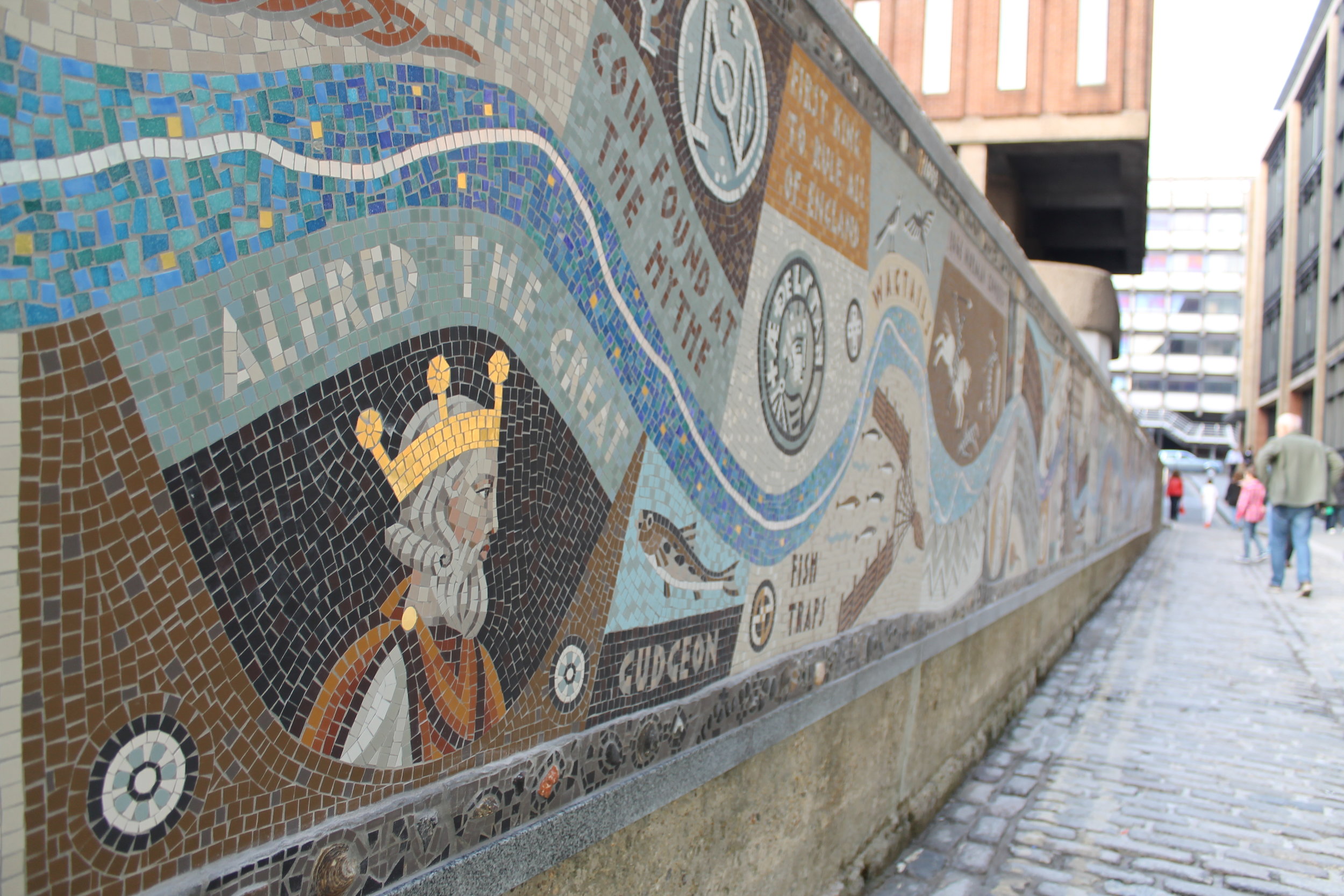300 artists and volunteers created the Queenhithe Dock Mosaic, a 30 metre long and one metre deep work of art, which charts some of the history of the dock. The Queenhithe, located on the north bank of the river Thames, was a main port of medieval London, receiving farm produce from the Thames valley and a myriad of produce from other regions and abroad.
The wall where the mosaic is placed is a flood defence barrier for the city and is also part of a Scheduled Ancient Monument (the only Anglo-Saxon dock in the world). There is a granite frame and inside of this a small border of pottery and materials collected from the river and dated by archaeologist Mike Webber, relevant to the timeline of the overarching theme of the mosaic (i.e. Tudor tiles frame the area of the Tudor era).
This art work tells the story of Queenhithe (the Queen’s wharf) from the first Roman visit up to the present, with 164 panels depicting character and aspects of the small port’s story. There are some portraits, for example Queen Mathilda after whom the port was named, Geoffrey Chaucer who used to collect the tax on each boat that off-loaded at the dock.
Several artists and experts worked on the project alongside hundreds of volunteers including local residents and school children.
Location: 1 Queenhithe, London EC4V 3EJ

